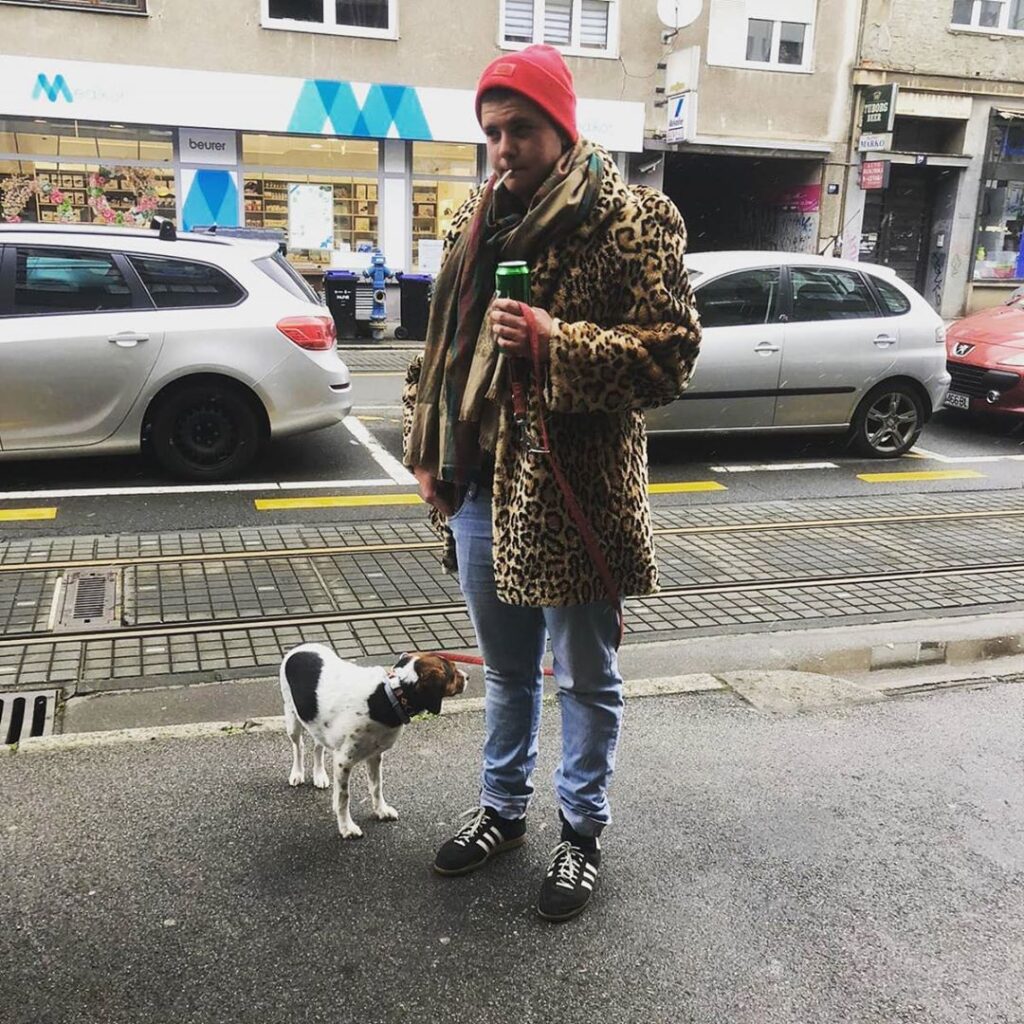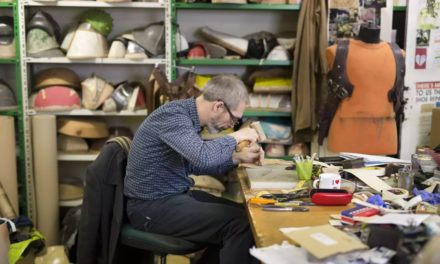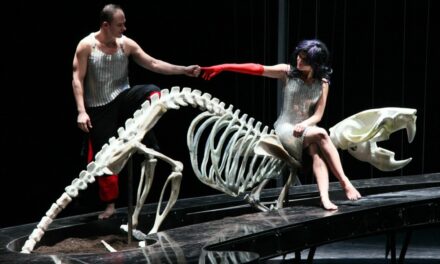Espi Tomičić is a new playwright on the Croatian theatre scene but already garnered attention for his three highly acclaimed plays. Without any pretension, he describes himself as “a boy from the neighborhood,” which is evident in this delightful and relaxed conversation. He first discusses his first two plays, Don’t Forget to Cover Your Feet and Your Love is King, both of which are raw and poetic. In part two, he looks at broader, theatre topics.
Included are translated excerpts from these powerful plays, which are currently only available in Croatian.
Quotes from Don’t Forget to Cover Your Feet, which deals with themes such as a murder of one’s parent and a son’s contemplation of revenge, can be found here and extracts from Your Love is King, about a mother’s cancer and a family’s rejection of their son’s transgender identity, are in the following piece.
Jelena Gvozden: What questions do your plays ask? What social phenomena would you like to describe?
Espi Tomičić: They are about family, specifically its re-examination and redefinition. Also, issues of identity, silence, and non-communication run through the texts. The topic of my newest play is friendship and a chosen family community; it is something that particularly interests me.
Excerpt from Don’t Forget to Cover Your Feet:
To you, who took a Kalashnikov rifle that night and killed my father.
I wanted to dedicate a text for you.
I wanted to kill you.
I wanted to tell you what you did to me.
I wanted to visit you.
I wanted to write you a threat letter.
I wanted to write you a support letter.
I wanted to tell you that I forgive you.
I wanted to tell you that it’s maybe better that way.
I wanted to tell you that my sister’s partner beats her.
I wanted to tell you that our brother also trashed her and me.
I wanted to tell you that he was doing it cause he felt too much pain.
I wanted to tell you that you’re responsible for that pain.
I wanted to tell you that my brother is waiting for you.
I wanted to tell you that he will take revenge.
I wanted to tell you that I’m most afraid of that.
JG: In the play Don’t Forget to Cover Your Feet, we find your hero in a very delicate moment. He is reminiscing about his father’s murder and deciding whether to take revenge on his father’s killer. How would you characterize your hero?
ET: I would say that he is his own executioner and he embodies his imaginary and real social community. He also represents a judge, a mother, a murderer, a child murderer, and a mother of a child murderer.
JG: In both plays, the hero is not subject to hubris or his social environment, yet manages to find the strength in himself for forgiveness and a new beginning. Where does he get his courage from and how does he differ from his brother who remains vicious and in pain?
ET: Fleeing saves him, but so does clear confrontation. In the poetic, polyphonic fantasies, the hero confronts everything he has not experienced and what he needs to survive. A line of demarcation runs through both plays, between his various personalities, various fragments of personalities, and the voices that characterize him. I wouldn’t say that he is so different from his brother or the people around him. In the text, he is the main character and we are offered his inner world and thought. I think he draws courage from imagination and desire for a new start, and no doubt he uses loneliness and separation to create his new world. I wouldn’t claim with certainty what is passed from parents to children because I think it is not the same in every family, but surely social class characterizes us as we grow and informs what we inherit, at least in the form of some conditions, thinking and behavior.
My grandma cries every day.
My grandma says that her life is over.
My grandma tells me that I don’t know what it means to lose a child.
my grandma loves her criminal son
mother of your father’s murderer suffers for her son
even killers have a mother who loves them
imagine
everyone has a mother who loves them
everyone
except you
JG: In the age of exclusive headlines in the press, it seems that people are dulled by the dramas happening around them, and understanding and compassion tire them. Do you think that talking in the first person is a more convenient way to become aware of someone else’s pain?
ET: I’m not sure, confessions and “true stories” have always been valued online and in the media, but I don’t think that’s necessarily true in art. For example, in the activist sense, it is important to emphasize and talk in the first person so we see that marginalized people really exist and that they are among us. I learned this through my experience with activism, advocacy, protests, and actions. Discrimination and violence can be fought through talking in the first person or at least through the visibility of a particular group.

Espi Tomičić on the streets of Zagreb, Croatia. Photo: Tomičić’s personal archive.
JG: Reading the plays and recognizing their apologetic moments, two questions kittled me: can we understand others only when we find ourselves in their positions? Is the opening of the soul to another only possible when we know we will not be rejected or mocked, therefore – only through the form of a letter with dedication?
ET: Well, it depends on the person. We don’t always have to step into someone’s shoes. Tolerance, understanding, and acceptance should happen even when we’re not in someone’s position, but it’s hard and that’s why society is how it is. Opening up to others in written form happens for a variety of reasons. If a person is not emotionally or physically present, if they are dead or distant, writing is all we have left. It makes sense what you’re saying because it’s much safer, but it’s less fair because the other person has no option to respond – especially if it is a dramatic text. I am one who writes and states his subjective truth, and other people involved are subordinate, without space for their own voices and visions. That is not very fair and I consider it at the time of writing, but also afterward.
waiting turned into fantasy
every day you type his initials into Google
they rarely write full names of killers
it’s ten years of that feeling when you’re waiting for your mother or father at the kindergarten
and you constantly think they will enter through the door at that very moment
JG: The hero of the play Your Love Is King was given the opportunity to live a different life only after stepping away from his family and parting with his former identity. Is that enough to make life more comfortable? If the home is not a safe place, what is?
ET: It is not enough for sure, because identity isn’t just its representation. It lives within us and it is difficult to reject patterns, habits, and opinions, and the contexts we are from. We are woven from our experiences, past, and context so we can never really get away from it completely. For me, a safe place is a chosen home, with people I have chosen and with whom I want to spend time. Unfortunately when we are children, services, institutions, and the judiciary decide for us if there is room for decision at all.
JG: During the coronavirus pandemic the play Your Love Is King was performed at a theatre without a physically present audience but was broadcast on Zagreb Youth Theatre‘s Facebook page. What is your view on live streaming shows?
ET: We live in a fast time, and scrolling has become the automated behavior of our fingers. For me, theatre is space, time, and presence. I don’t have enough concentration to watch a video for an hour without distraction, especially if it isn’t initially designed for that medium. Theatre doesn’t endure distraction unless it is intentional and an integral part of the performance. I can hardly wait for theatres to re-open their doors and to sit on a chair or on the stairs.
Jelena Gvozden is in love with the magic of words. She became obsessed with studying comparative literature and learning several languages. Trying to understand others and herself better, she likes to think that knowledge helps her in conversation and interactions with people.
This post was written by the author in their personal capacity.The opinions expressed in this article are the author’s own and do not reflect the view of The Theatre Times, their staff or collaborators.
This post was written by Jelena Gvozden.
The views expressed here belong to the author and do not necessarily reflect our views and opinions.

















